Abstract
OBJECTIVE: To estimate the proportion of U.S. homes with installed smoke alarms, smoke alarms on the same floor as occupants' bedrooms, and fire escape plans. METHODS: The authors analyzed data on smoke alarm use and fire escape planning from a 1994 stratified random telephone survey of 5238 U.S. households. RESULTS: Respondents from 91% of surveyed households reported the presence of at least one installed smoke alarm, and 94% of respondents reported having an alarm on the same level of the home as their sleeping area. The prevalence of installed smoke alarms varied by highest education level in the household and income level. Sixty percent of all households had designed or discussed a fire escape plan at least once; only 17% of these households had actually practiced one. CONCLUSIONS: Although overall use of smoke alarms was high, certain population subgroups were less likely to have smoke alarms or to have them installed on the same floor as bedrooms. Fire escape planning, another important safety measure, was somewhat less common, and very few respondents reported having practiced a fire escape plan with the members of their household.
Full text
PDF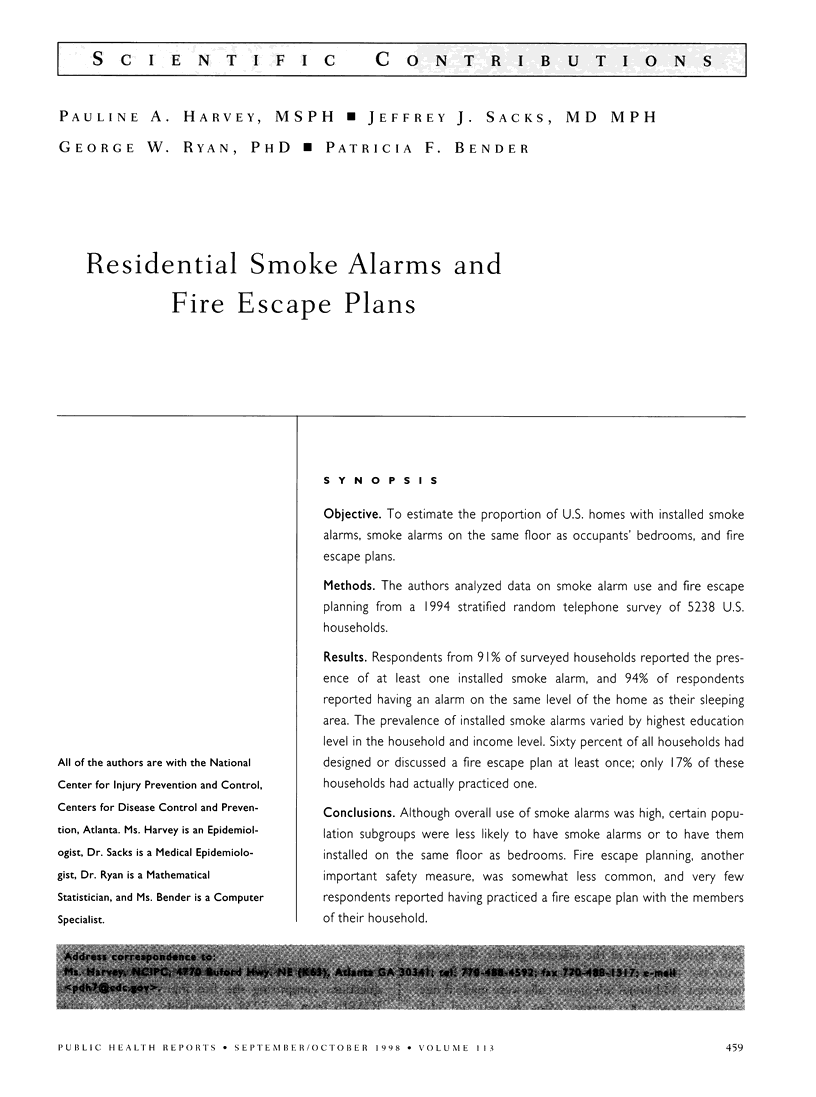
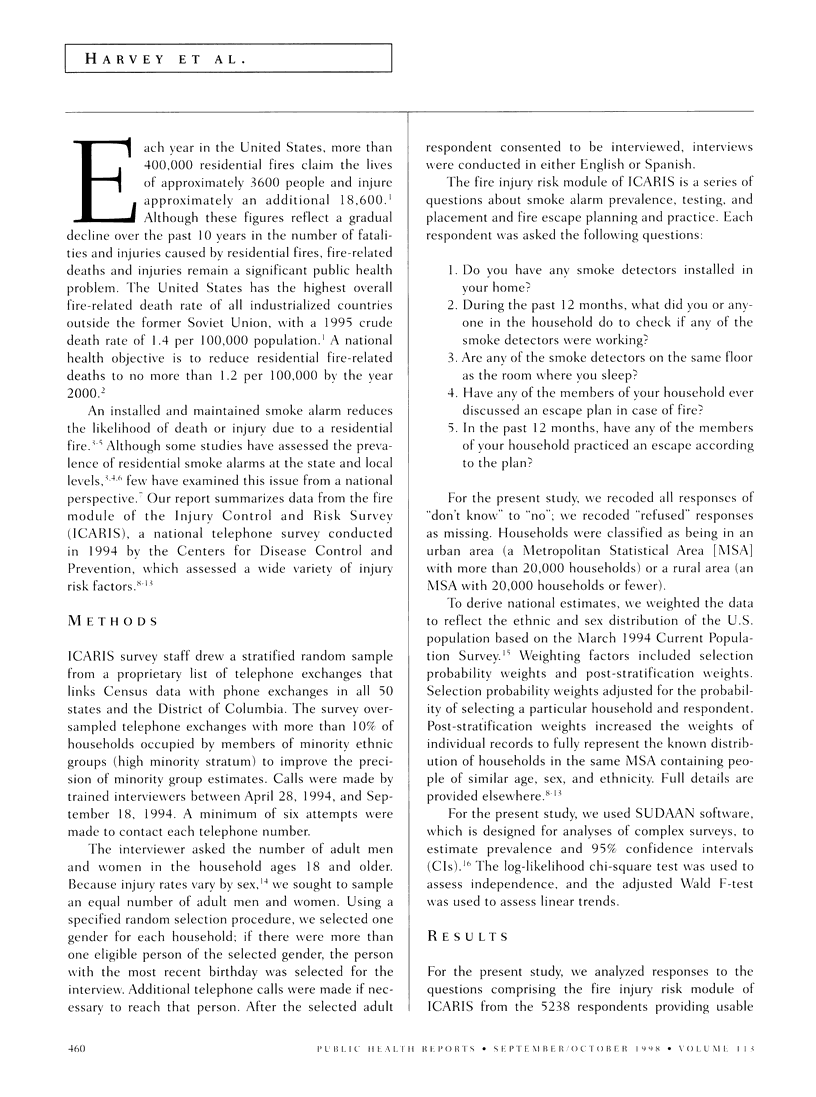
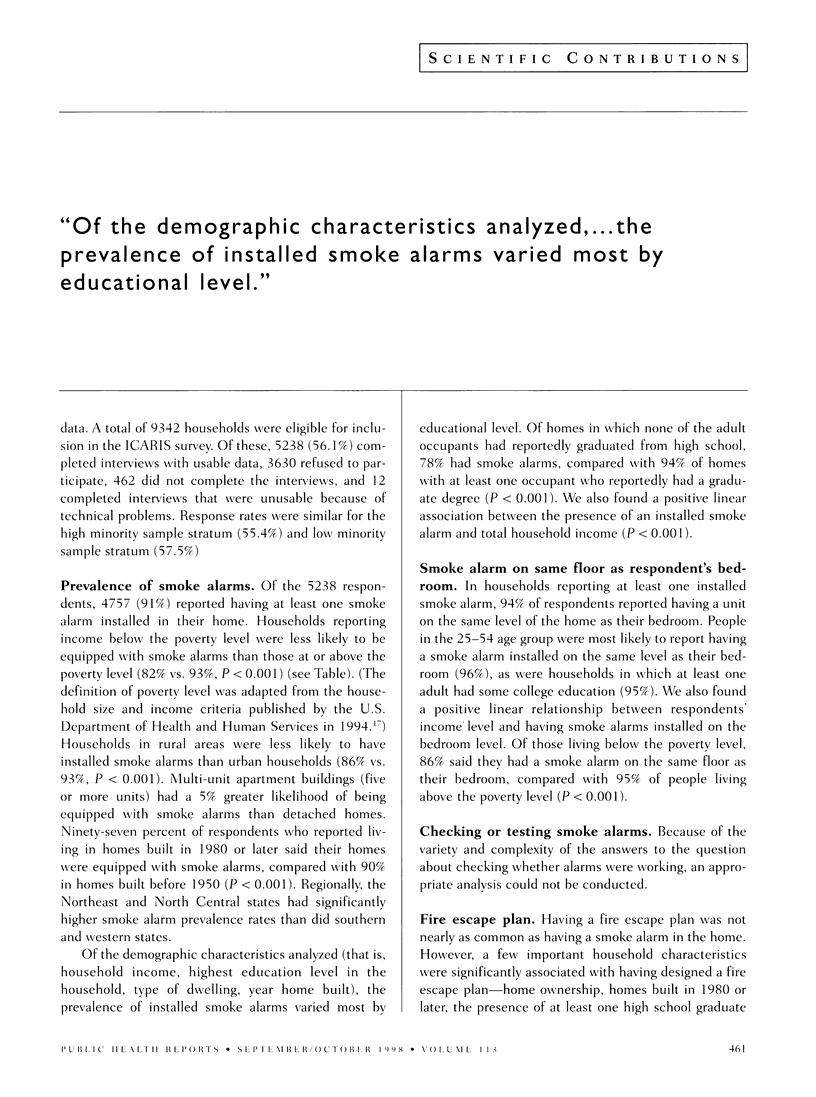
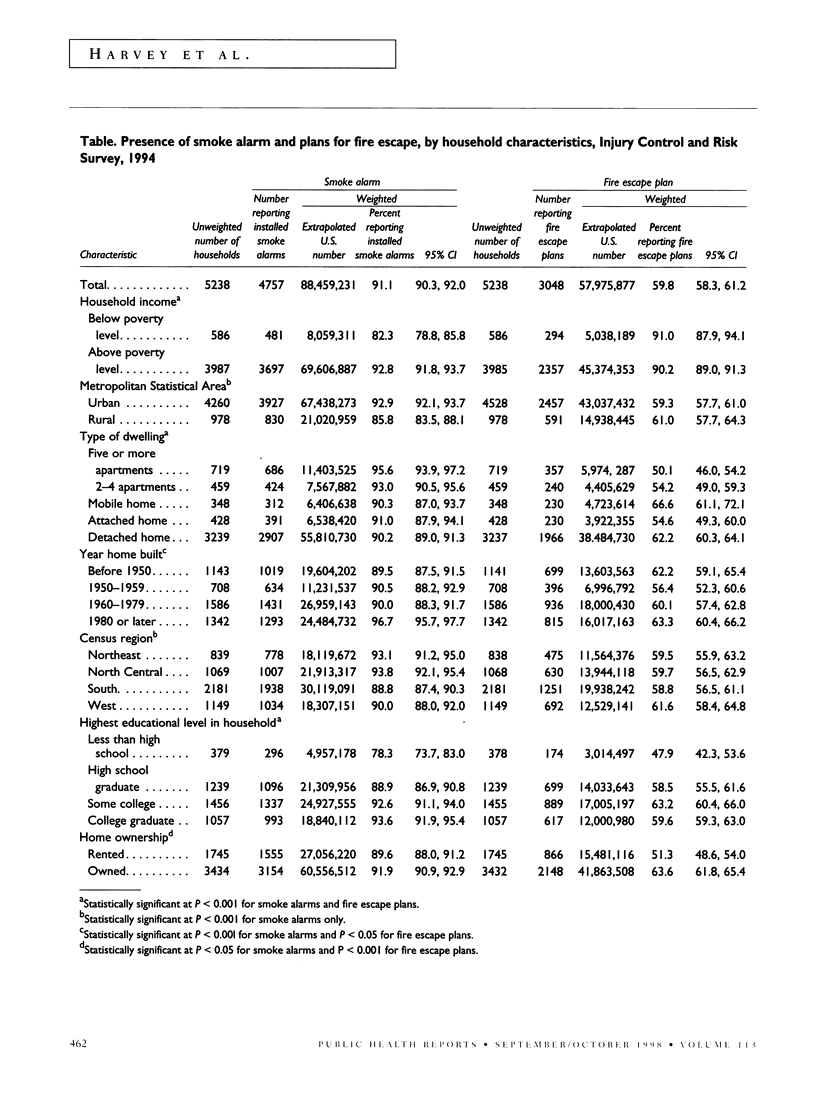
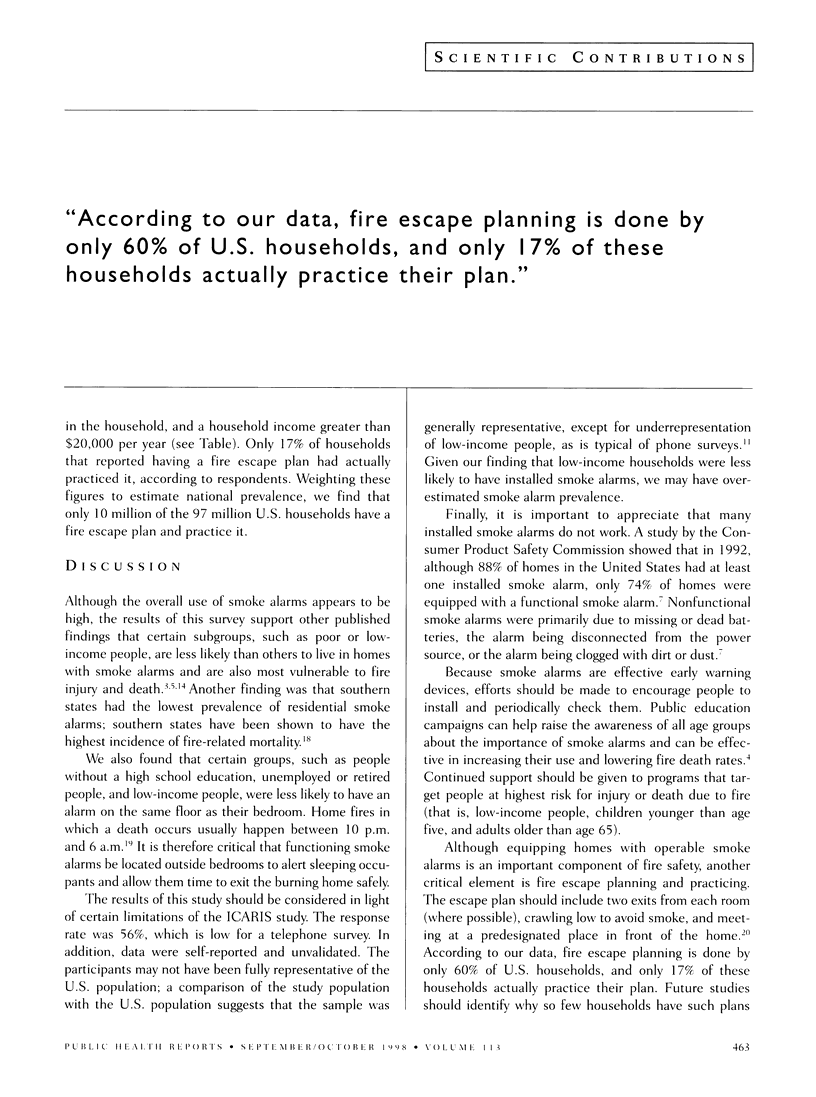
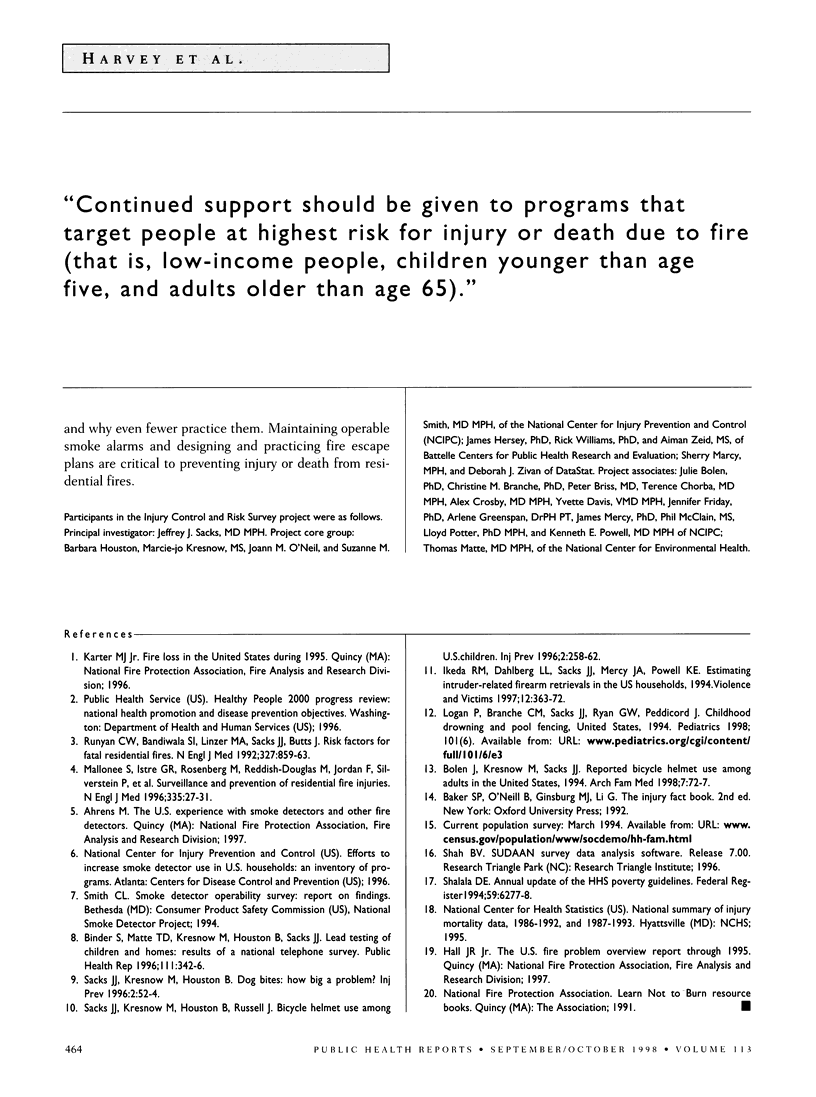
Selected References
These references are in PubMed. This may not be the complete list of references from this article.
- Binder S., Matte T. D., Kresnow M., Houston B., Sacks J. J. Lead testing of children and homes: results of a national telephone survey. Public Health Rep. 1996 Jul-Aug;111(4):342–346. [PMC free article] [PubMed] [Google Scholar]
- Bolen J. R., Kresnow M., Sacks J. J. Reported bicycle helmet use among adults in the United States. Arch Fam Med. 1998 Jan-Feb;7(1):72–77. doi: 10.1001/archfami.7.1.72. [DOI] [PubMed] [Google Scholar]
- Ikeda R. M., Dahlberg L. L., Sacks J. J., Mercy J. A., Powell K. E. Estimating intruder-related firearm retrievals in U.S. households, 1994. Violence Vict. 1997 Winter;12(4):363–372. [PubMed] [Google Scholar]
- Mallonee S., Istre G. R., Rosenberg M., Reddish-Douglas M., Jordan F., Silverstein P., Tunell W. Surveillance and prevention of residential-fire injuries. N Engl J Med. 1996 Jul 4;335(1):27–31. doi: 10.1056/NEJM199607043350106. [DOI] [PubMed] [Google Scholar]
- Runyan C. W., Bangdiwala S. I., Linzer M. A., Sacks J. J., Butts J. Risk factors for fatal residential fires. N Engl J Med. 1992 Sep 17;327(12):859–863. doi: 10.1056/NEJM199209173271207. [DOI] [PubMed] [Google Scholar]
- Sacks J. J., Kresnow M., Houston B. Dog bites: how big a problem? Inj Prev. 1996 Mar;2(1):52–54. doi: 10.1136/ip.2.1.52. [DOI] [PMC free article] [PubMed] [Google Scholar]
- Sacks J. J., Kresnow M., Houston B., Russell J. Bicycle helmet use among American children, 1994. Inj Prev. 1996 Dec;2(4):258–262. doi: 10.1136/ip.2.4.258. [DOI] [PMC free article] [PubMed] [Google Scholar]


